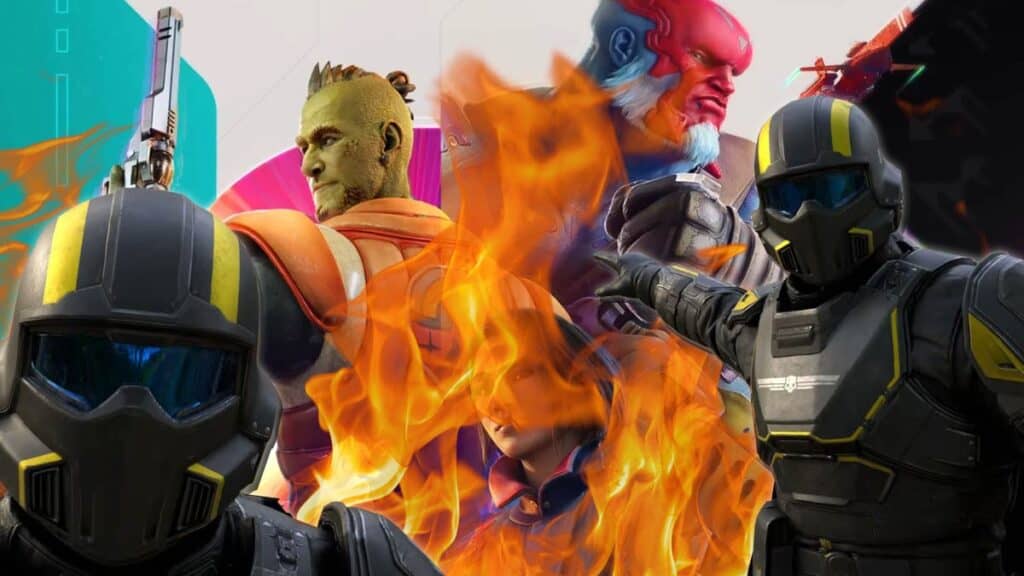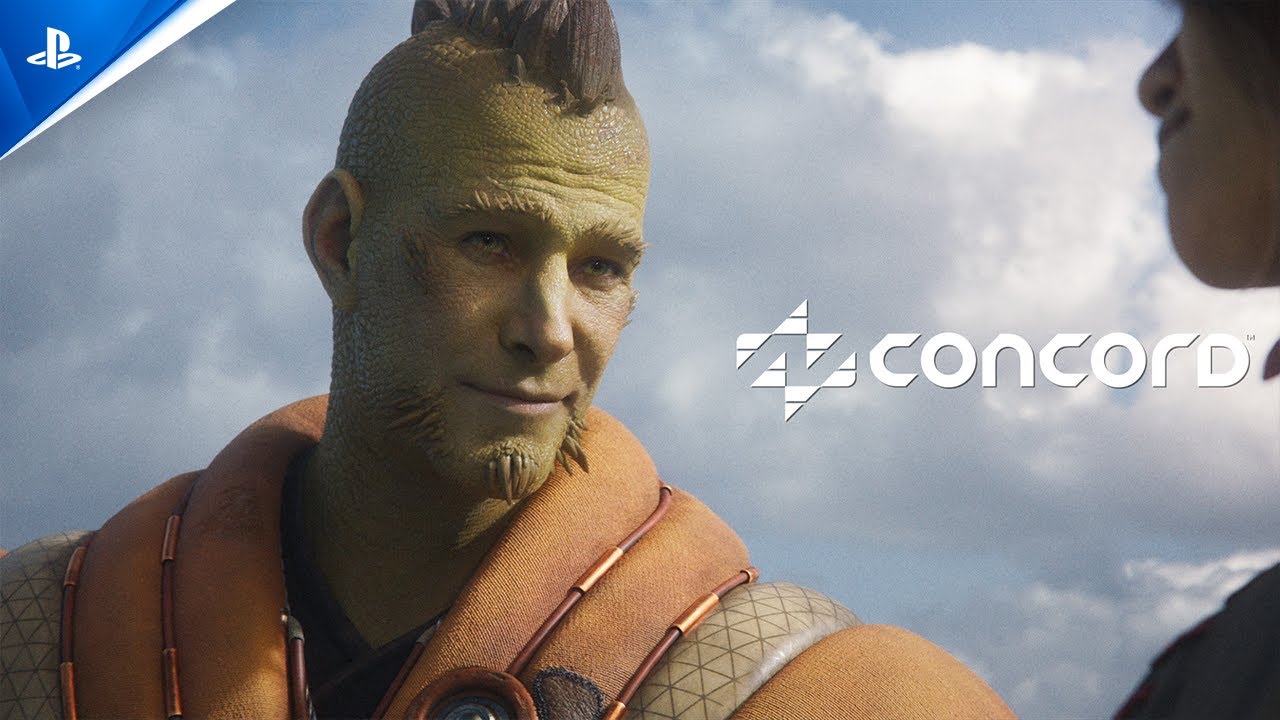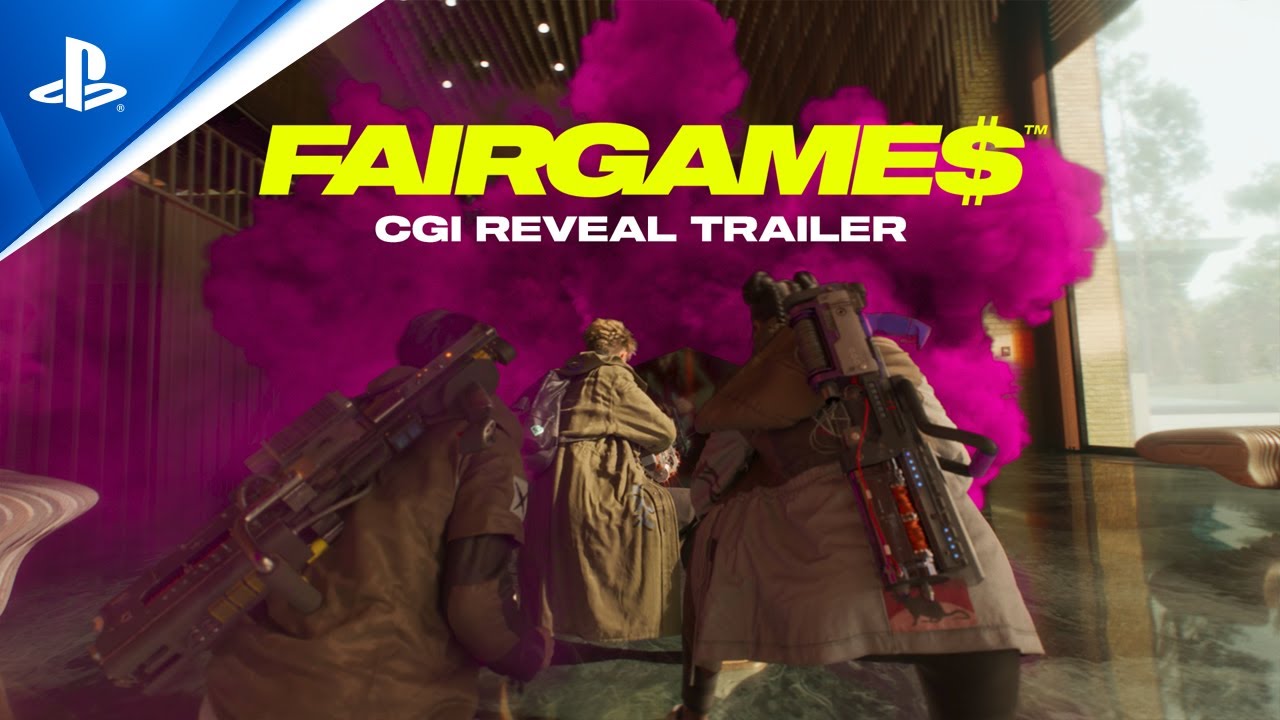Skip To...
On September 3, Sony announced that its recently released live service competitive game Concord is shutting down its server in three days. Anyone who bought the game, digital or physical, is eligible for a refund. If you try to search for “Concord” on Steam, Epic Games Store, and PlayStation Store now, you’ll no longer find a relevant result.
Truth be told, the news barely comes as a shock even to our office. The game, which struggled to captivate an audience, faced harsh criticism for its lack of identity in a market overflowing with free-to-play options. So how did it come to this, and can Sony learn from this million-dollar mistake when compared to its more fortunate cousin?
The Rise and Fall of Concord, The AAA Game That Couldn’t
In May 2023, Sony announced it’s publishing a brand new live service game from Firewalk Studio, a developer the company just acquired a month ago. Staffed by ex-Call of Duty and Destiny developers, the team was established in 2018 and the two entities have forged a publishing partnership since 2021.
Sony’s marketing team went full-on with this title, perhaps hoping it could be the tip of the spear for its new “live service strategy.” The PlayStation maker launched a Concord-themed limited edition DualSense and grabbed a slot for Secret Level, Amazon’s upcoming animated anthology series.
Then a year later, in late May 2024, Firewalk Studio finally revealed what the team has been working on all these years. Firewalk’s debut, unfortunately, did not get the fanfare it was expecting.
The reveal was instantly slammed by players with skeptics calling it a “Guardians of the Galaxy from Temu.” Many thought the character barely had a personality behind the designs and the quippy dialogue was overdone. Some who were first excited, instantly turned a blind eye once they learned that it was going to be another “5v5 first-person shooter.” As of writing, the reveal video on PlayStation’s official YouTube channel has only 337,034 views.
It doesn’t help that Sony expected players to shell out $40 for Concord. Or even $60, if you want to acquire all the bonus skins in the Digital Deluxe Edition. Meanwhile, competitors old and new from Overwatch to Marvel Rivals offer similar experiences free of charge.
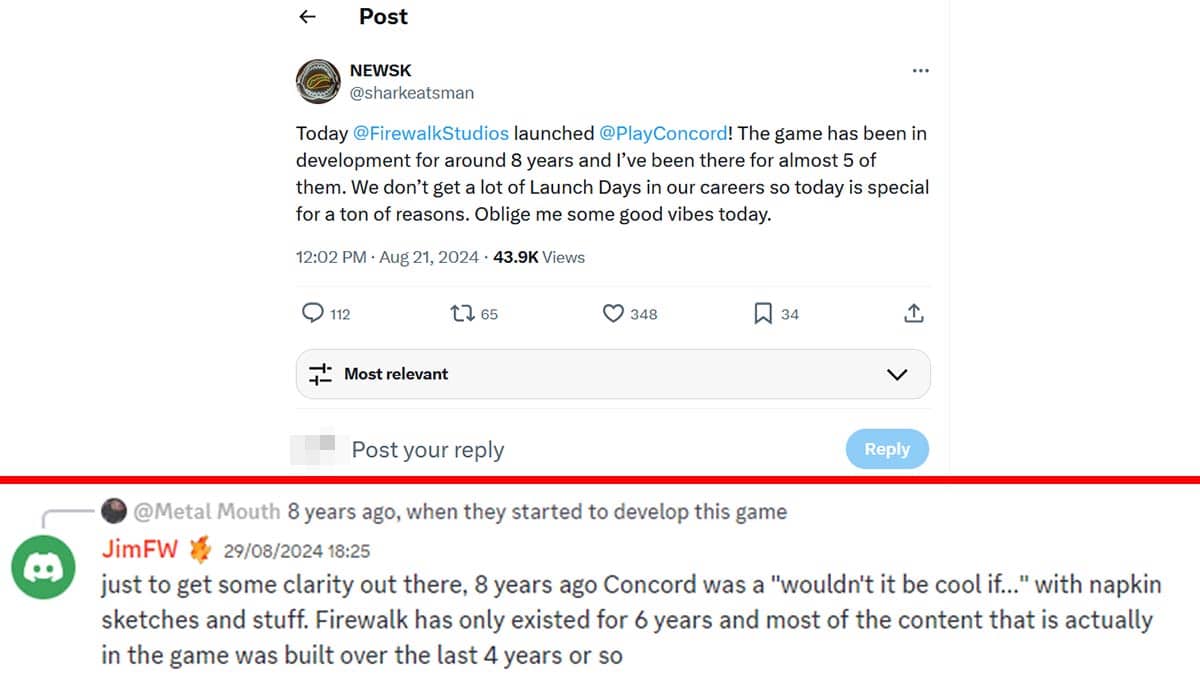
According to lead character designer Jon Weisnewski, Concord has been in development for 8 years. It’s an incredibly long development cycle, let alone for a PvP multiplayer game in a rapidly evolving competitive scene. In comparison, Respawn’s Apex Legends was developed in 3 years and Riot Games created its popular esport FPS Valorant in 6 years. While it also took Valve 8 years to launch Team Fortress 2, the game barely had competitors back in 2007.
Technical artist James Williams, in a deleted post, later clarified on Discord that “most of Concord‘s content” was built in the last 4 years. But to add salt to the wound, industry rumor said that Sony could spend up to $200,000 million to develop a new IP. Meanwhile, analysts estimated the game managed to only move 25,000 units. Based on those numbers, Concord only made $1 million in revenue, 0.5% of the estimated cost. That’s before being subtracted by Steam and other sales taxes.
When the game launched on August 20, it barely made a ripple in the market. On Steam, Concord only reached 697 concurrent players at its peak and steadily declined; to 111 active players at the time of writing. Although a content roadmap was drafted until April 2025, the team was planning to keep the dwindling player retention through weekly short animated CG cutscenes. 13 days after launch, or one day before server closure, players already had trouble getting into a match. Filling up a 5v5 round took so long that the queue even canceled itself.
Even Concord‘s social media presence did not last long. The @PlayConcord X handle suddenly stopped posting updates on August 26, less than a week after its release. Previously, it often retweeted players’ excitement about purchasing the game and match highlights.
A Tale of Two Sony-published Live Service Games
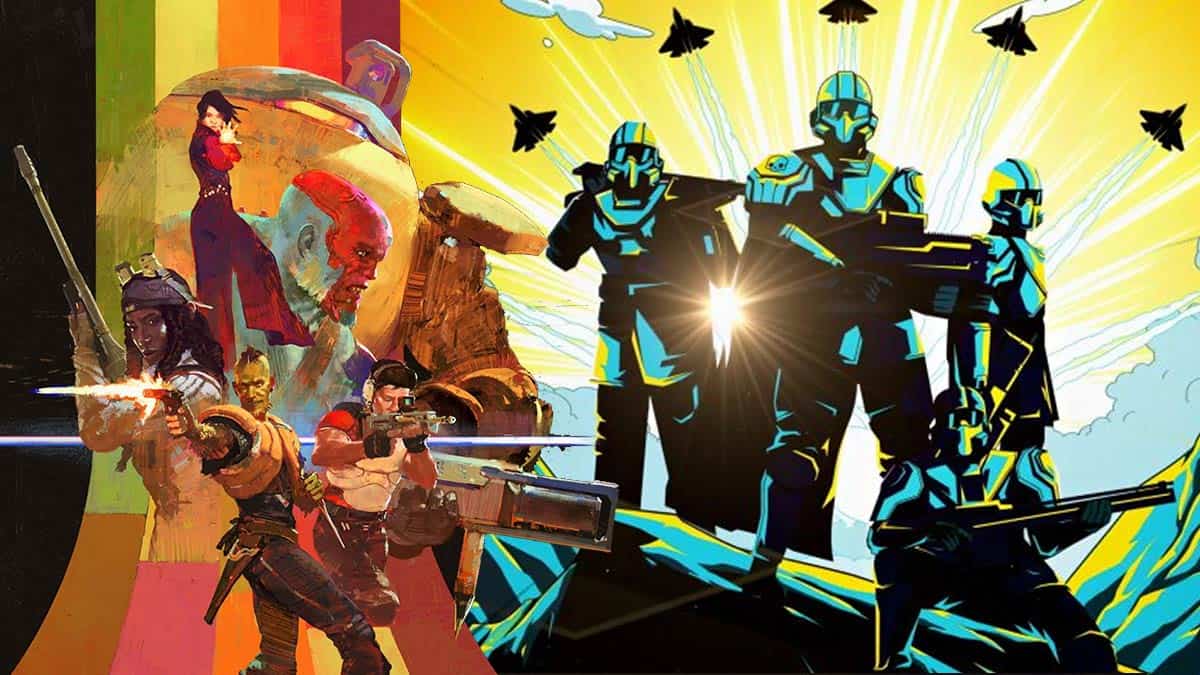
It’s safe to say that Concord‘s failure can be seen as another nail in the coffin of the live service model– especially for competitive PvP ones. Hindsight is 20/20, but one can easily take a look back and see all the warning signs. Before Firewalk teased Concord‘s existence, many PvP shooters already died due to a lack of player interest:
- Battleborn: Gearbox’s “Overwatch-killer,” lasted 4 years until 2021.
- Dirty Bomb: Splash Damage’s team-based shooter, held on for 4 years until 2019.
- Paragon: Epic Games’ MOBA-shooter hybrid, lasted for 2 years until 2018.
- LawBreakers: Cliff Bleszinski’s arena shooter, shuts down in 1 year in 2018.
Even something that brought more to the table, the asymmetrical 4v1 shooter Evolve, failed to gain traction in the long run.
Nevertheless, in stark contrast to Concord‘s struggles, another Sony’s live service game continues enjoying support from a huge player base on PC and PlayStation. Just last month, said game received its biggest update yet, “Escalation of Freedom.” Yep, we’re talking about Helldivers 2.
They’re both published by Sony and both are games-as-a-service, so what gives? The one key difference is simple: Helldivers 2 is a PvE experience.
While Helldivers 2 isn’t immune to the pitfalls of modern online game design, its PvE approach has proven to be a more stable foundation. Without the need to keep an always active online community, Helldivers 2 can concentrate on making the game better and more enjoyable right from the start. You can run any Operation with less than 4 people or even solo, but Concord has never been balanced for a 3v5 match.
What’s Next for Concord– and Sony?
There is always a small chance that Concord might be relaunched as a free-to-play title just like Square Enix’s off-brand Splatoon, Foamstars. Still, the different outcomes of Concord and Helldivers 2 show a lot about today’s ever-changing gaming landscape.
Concord tried to plunge head first into the oversaturated competitive live service game and failed spectacularly. On the other hand, Helldivers 2, despite players’ complaints every time there’s a post-launch update and balance patch, succeeded by delivering a solid co-op experience. This makes us wonder about the future of game-as-a-service, especially for Sony.
The company is mostly known for immersive experiences thanks to The Last of Us, God of War, and Ghost of Tsushima after all. When it comes to online gaming, PvP never comes to games’ minds when talking about Sony. Even games with PvP like Bloodborne and Destiny 2 are mostly propped up by their cooperative mode offerings.
However, right now Sony and Haven Studios are cooking up another competitive game titled FAIRGAME$. Also announced back in May 2023, and so far we barely heard anything to hype it up. Is it going to be another live service product that’s doomed to fail?
It’s too early to tell. That said, the lessons from Concord will likely shape the strategies of Sony and the industry in the years to come. A stark reminder of the challenges of breaking into the overcrowded, live service, 5v5 hero shooter gameplay.

